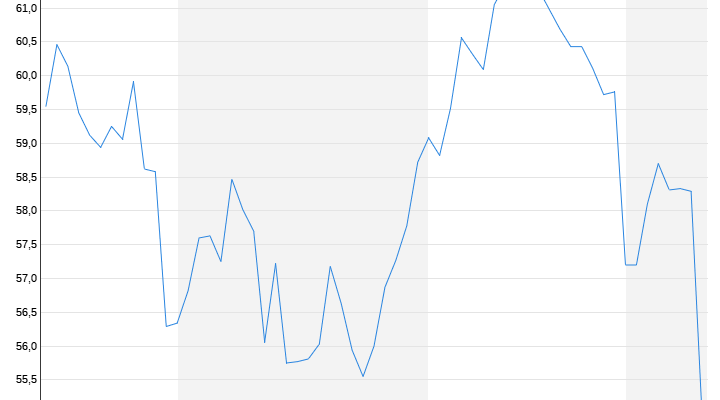“Lower Corridor of Forecast”
Glyphosate is poisoning Bayer’s prospects
05/11/2023 10:38 am
Gloomy forecasts: The outgoing Bayer boss Baumann has to report a poor start to the year at his last quarterly presentation and dampen expectations. In the pharmaceutical sector, a blockbuster is weakening and in the agricultural sector, the weed killer glyphosate is not bringing in as much as hoped.
Bayer is grappling with lower glyphosate prices and a weaker pharmaceutical business. After a significant drop in earnings in the first quarter, the pharmaceutical and agricultural group is only within reach of the lower end of its annual targets. “Overall, we expect to achieve our target in the lower corridor of our forecast,” said the outgoing CEO Werner Baumann. The significantly reduced market price expectations for glyphosate-based weed control agents had a particularly negative effect. Added to this are inflation and high research costs for new drugs.
In the pharmaceuticals business, significant declines in sales of Bayer’s blockbuster, the anticoagulant Xarelto, are leaving their mark. For 2023, the Leverkusen-based company expects a currency-adjusted increase in sales of two to three percent to 51 billion to 52 billion euros. Adjusted operating income is likely to fall to 12.5 billion to 13 billion. Bayer has lowered its sales expectations for the CropScience agricultural business and is only anticipating currency-adjusted growth of 1.5 percent instead of 3 percent. Investors reacted coldly: Bayer shares lost more than five percent at times.
In the first quarter, adjusted operating profit fell by almost 15 percent to 4.5 billion euros. Analysts had expected a smaller, slighter decline. However, Bayer’s pharmaceutical business developed more weakly than expected, with losses in China being the main burden. Sales of Xarelto collapsed by around 13 percent.
Overall, Bayer’s sales fell by 1.7 percent to 14.4 billion euros, a drop of a good one percent after currency adjustments. The bottom line is that the group made a profit of almost 2.2 billion euros, a good third less than a year ago. Special expenses of 431 million euros had an impact here. EUR 278 million of this is due to an impairment due to significantly reduced market price expectations for glyphosate.
For Baumann it is the last quarterly balance sheet. On June 1st, Bill Anderson, who has been a member of the Executive Board since April, will take the helm. Above all, investors expect him to restore investor confidence, which Baumann lost with the multi-billion takeover of Monsanto, and to review the group’s structure.
